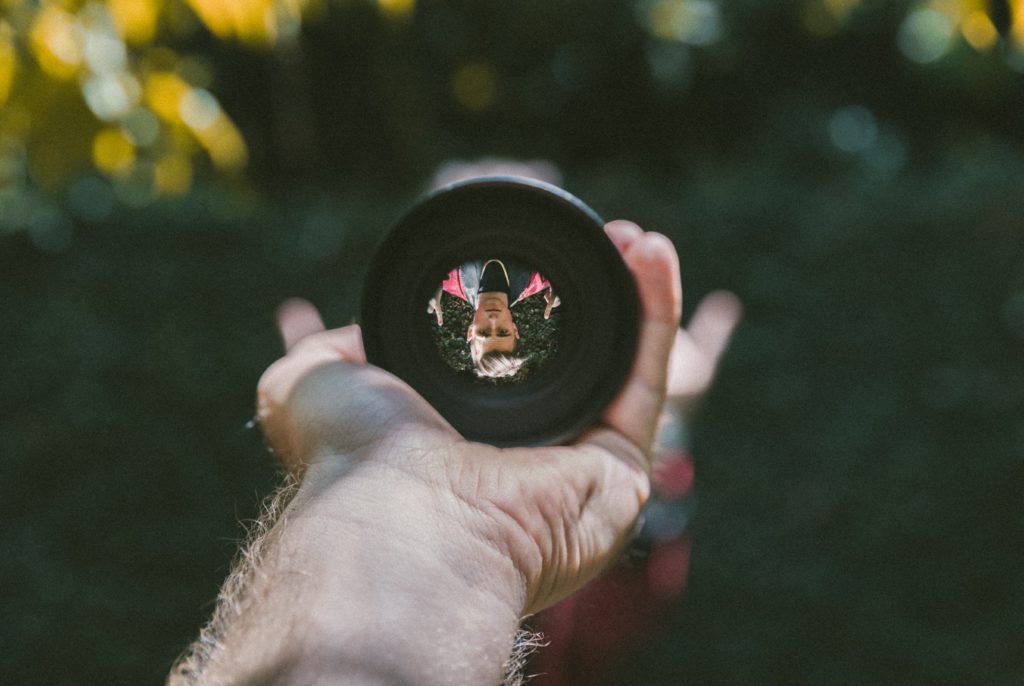One of my greatest educational investments this year was purchasing the Penguin Little Black Classics Box Set. And from that set of 80 slim wisdom-filled volumes, my favourite so far is one by the Machiavellian title of How to Use Your Enemies.
How to Use Your Enemies is a book of maxims by a seventeenth-century Spanish priest by the name of Baltasar Gracián. The volume is just 54 pages long but, despite its small size, ended up being one of two books I got the most value from (and took the most notes from) this year. The other book being Stephen R. Covey’s The 7 Habits of Highly Effective People.
I found it amusing to read some of the Goodreads’ reviews for How to Use Your Enemies. People one-starred this little volume as though Hitler, Mussolini, and Mao had all collaborated on it together. People see Gracián’s teachings as those of a manipulative asshole but I see a book filled with maxims stemming not only from Christian doctrine but the doctrine of many world religions. I see a book that teaches the reader the best ways to help others and keep peace in the world. I see a book that is a beacon of guiding light. Feel free to disagree.
Here are some of my favourite gems of wisdom from How to Use Your Enemies. The book contains many more and I implore you to pick up and scribble all over your own copy.
ON KNOWLEDGE
You are as much as you know, and a wise person can do anything. A person without knowledge is a world in darkness.
Just because I’m relatively anti-college doesn’t mean I scorn the value of knowledge. We must all be lifelong students, acquiring deep knowledge in our field of expertise and wide knowledge in a far reach of many disparate subjects.
A wise person truly can do anything because they are armed with the information they need to get what they want.
But here’s the caveat:
Without courage, wisdom is sterile.
Many use “gathering knowledge” as an excuse for inaction.
We must be perpetual students. Perpetual means there is no end to our pursuit of knowledge. And, because there is no end, there is no perfect day for us to take action with what we have learned.
Learn and implement. Take action immediately because experience is a great teacher.
The greatest teacher of all is study twinned with experience (case in point: this Quora answer).
And it takes courage to seek experience.
You don’t need to appear equally intelligent to all, nor should you employ more effort than is necessary. A good falconer releases only as many birds as are needed for the chase.
Despite priding oneself one being a perpetual student, one must not get caught in the trap of placing all of their self-worth upon their intelligence.
Those who constantly strive to show off their intelligence give off the same desperation as those constantly trying to show off their philanthropic side or how rich they are or how attractive they are.
The truly intelligent conserve their mental energy for those situations that call for it.
Don’t continually flaunt your qualities or there’ll be nothing left to admire. There must always be something novel with which to dazzle, for people who reveal something new each day keep interest alive and never allow the limits of their great abilities to be discovered.
I’m sure you know the feeling of having known someone for years and only just discovering that they are a mini-expert on some topic that interests you.
The feeling is exciting and suddenly you see that person with new depth.
You have deepness within you.
You have fathoms of well-conceived thoughts and opinions concerning politics, economy, religion, superstition, and more.
Don’t burst the dam. Allow someone the joy of discovering these depths in you wave by wave.
The greatest form of knowledge is, on occasion, not to know, or to affect not to know.
This is perhaps one of the most important lessons from How to Use Your Enemies.
If you affect not to know about something, you can see how much another person knows because you can ask the beginner questions.
Reserving your knowledge on certain matters can also ensure that you avoid the ill-will of another person because many will attack when confronted with facts that shit on their worldview…
Which leads on perfectly to this gem:
Every fool is utterly convinced, and everyone utterly convinced is a fool, and the more mistaken their opinion, the greater their tenacity.
ON PERSUASION
There are pages in How to Use Your Enemies that seem torn straight out of Copywriting 101.
Find everyone’s weak spot. We all idolise something: for some, esteem; for others, self-interest; and for most, pleasure. The trick for influencing people lies in knowing what they idolise. Knowing each person’s driving impulse is like having the key to their will.
Anyone who has read Triggers by Joseph Sugarman will find this advice familiar.
You should first divine someone’s character, then touch upon their fixation, and take control of their driving passion which, without fail, will defeat their free will.
When you’re writing copy, you must always keep one character and their driving passion in mind.
Before you even begin drafting copy for that acne cream, that flashy sports watch, or those diet pills, you must first understand what it is your customer truly wants.
No one wants acne cream. Everyone wants to be beautiful and have a date to prom.
What’s good, if sparse is twice as good. The only rule in pleasing is to seize upon an appetite already whetted. Hard-won happiness is twice as enjoyable.
These maxims are ripped straight out of the entrepreneur’s handbook.
Find a hungry market, validate the idea, create a product that people want, and make your product scarce.
ON THE 80/20 PRINCIPLE
I love the phrasing Gracián uses here:
There are non-essential activities, moths of precious time, and it’s worse to take an interest in irrelevant things than do nothing at all.
Moths of precious time…
What are your moths of precious time?
Maybe it’s scrolling down your Facebook feed.
Whatever moth of precious time you’ve let into your life, remember it is better to do nothing with your time than waste it with frivolous activities.
If we take nothing to mean silent contemplation, you know in your gut that that is preferable to allowing your insecurities to increase as you compare your life to those of the strangers clogging up your friend feed.
ON MANNER
Gracián meditates at length on the notion of manners.
This is where I fail to understand where the negative reviewers on Goodreads are coming from (unless I take them to have misunderstood the writer’s words).
How to Use Your Enemies, more than being a diatribe on how to be an insufferable asshole who dicks over everyone in his life, is a delightful guide on how to be a perfect gentleman or gentlewoman.
A bad manner ruins everything, even justice and reason. A good manner makes up for everything: it gilds a ‘no’, sweetens truth, and beautifies old age itself. Graceful conduct is the chief ornament of life; it gets you out of any tight situation.
Elsewhere Gracián talks of people who give more value in a ‘no’ than those who give a ‘yes’. The value comes in the style of delivery.
Good manner indeed makes up for everything.
Have you ever been refused something but left the interaction thinking wonderfully of such a person? They had the manner and the composure and the elegance that made you feel accepted even when you were being denied.
Contrast that to situations where you won an easy ‘yes’ and left feeling as though that person were pathetic and weak. The difference, again, is in how one holds themselves.
What Gracián is saying here, among many other things, is do not be afraid to say ‘no’ to something or someone. With the right approach, that ‘no’ can be as sweet as honey.
Never lose your composure. Be so in control of yourself that, whether things are going well or badly, nobody can accuse you of being perturbed and all can admire your superiority.
I take composure here to mean a cool default state.
I know James Bond is a grossly exaggerated character type but think of the metaphor by which he lives his life:
“Shaken, not stirred.”
It doesn’t matter what shakes him up – a beating from an enemy or a romp in the sack with a femme fatale – Bond is never stirred.
It’s important to note that composure should be contained in good and bad situations.
If you can resist becoming like an overexcited puppy when fortune smiles, you can also resist breaking down like a blubbering toddler when disaster strikes.
Your state should be dependent on your core principles (to nick an idea from Covey and Frankl), not your enviornment.
Keeping your composure requires mastering yourself.
And mastery begins with understanding.
As Gracián elaborates:
You can’t be master of yourself if you don’t first understand yourself.”
Composure is not just how you hold yourself but how you interact with the world and others:
There’s always time to utter a word, but not to take it back.
This is a wonderful maxim by which to live.
Speak carefully and speak surely. Act as though each word you speak will be written in eternity and you will avoid speaking in error or offending by mistake.
What I love about this advice is just how beautifully mindful it is.
If you can get a reign on your words, and get a reign on your thoughts, you can live a life that most can only envy.
ON BREVITY
What’s well said, is quickly said.
Need I add more?
ON AFFECTION
How to Use Your Enemies is really, despite the clickbait title, a pamphlet on how to make friends.
Gracián’s book of maxims is a miniature How to Win Friends and Influence People.
It’s a great thing to earn people’s admiration, but more so their affection. Do endless good; good words, better deeds; love, in order to be loved.
Too many people try to win the love of others by building themselves up.
They think if only they could become more successful, earn more accolades, improve how they appear, then people will flock to them.
But really, to use Dale Carnegie’s analogy, one need only look to man’s best friend, the dog, for a lesson in how to create affection.
You get love by loving others.
I can’t tell you how many times I’ve had a terrible opinion of a person only to flip 360 and think they’re the best thing in the world because they showed me endless love and affection.
We naturally like and love those who like and love us.
And there are few better maxims by which we should live our lives than “Do endless good; good words, better deeds”.
With the learned, learned, and with the devout, devout. A great art to win everyone over, since similarity creates goodwill. Observe each person’s temperament and tune yours to it.
Teddy Roosevelt, one of the biggest “people” presidents the US has ever known, used to stay up late before big dinner parties learning a little bit about the different interests of those who would attend the party.
He’d bone up on everything from boating to ornithology and then speak exclusively on the topics closest to each individual party goer’s heart in order to win his affection… And it worked.
Will I talk about Japanese politics to my hairdresser in London?
No.
But when she mentions how she’s into crystals and believes in angels, I’ll happily start talking about that and telling her my experience seeing chakras during Wim Hof meditation.
Win someone’s affection and their respect will follow.
ON PUBLIC OPINIONS
This advice goes hand-in-hand with Gracián’s maxims on knowledge:
To want to go against the current is as impossible for the wise as it is for the reckless. Dissent is taken as an insult since it condemns another’s judgement. Truth is for the few. The wise cannot be identified by what they say in public, since they never speak there with their own voice.
In today’s climate, keeping your political beliefs close to your heart (or at least away from Twitter) is a mark of the wise.
ON TRUTH
Gracián was writing 400 years ago.
He was right on the subject of truth then, and he’s even more right now.
We see very little for ourselves and live on others’ testimony. Hearing is truth’s last entry point, and a lie’s first.
Always be skeptical about what you hear unless the information has come to you empirically.
Truth is always tinged with the emotions through which it has passed.
This is the “fake news” phenomenon in a nutshell.
ON SAVING

How much do you have saved for a rainy day?
If the answer is “not much”, you’d do a lot worse than to read Dave Ramsay’s Total Money Makeover and get $1,000 stuffed under a mattress immediately.
It’s sensible to make provision for winter in the summer, and far easier. Have friends and grateful people set aside, for some day you will appreciate what you barely notice now.
Of course, when we talk about saving, we’re not just talking about money.
We’re also talking about goodwill.
I’m sure there have been times in your life where everything has gone tits up and you’ve found your support network suddenly lacking.
People won’t just be there when you need them. You need to be there for them when they need you. They need to be in your life for the good times if you want them around to help you through the bad.
Just as nature doubled the most important and exposed parts of the body, so human skill should double those things on which we depend.
This is an interesting idea:
Always have a backup.
Just finished a novel?
Have a hard copy, a copy in the cloud, a copy on a digital drive, and a copy on a USB.
Think ahead: today for tomorrow, and even for many days after that. The greatest foresight is to have abundant time for it.
Start planning for tomorrow today.
ON ENJOYMENT
Are you rushing through life as though everything were on a giant checklist?
Don’t live in a hurry. To know how to parcel things out is to know how to enjoy them. With many people their happiness is all over with life still to spare. They waste happy moments, which they don’t enjoy, and then want to go back later when they find themselves so far down the road. They want to devour in a day what could barely be digested in a lifetime. Moderation is necessary even in our desire for knowledge so as not to know things badly. There are more days than joys to fill them. Take enjoyment slowly and tasks quickly. It’s good when tasks are completed, but bad when happiness is over.
Learn to drink in the good times.
ON SKILL

Rather than focusing on your weaknesses and trying in vain to bring them up, you should double down on your strengths:
Know your key quality, your outstanding gift. Cultivate it, and improve the rest. Everyone could have been pre-eminent in something, if they had been aware of their best quality. Identify your key attribute and redouble its use.
The difficulty, often, is knowing what your key quality is.
There are plenty of personality tests you can take that will put you in touch with your key qualities but, quickly, you could just ask yourself what one thing could you talk endlessly and passionately about to anyone who would listen?
Follow that and sharpen that blade.
Dare to dazzle anew, rising repeatedly like the sun, shining in different fields, so that your absence in one area awakens desire and your novel appearance in another, applause.
Such poetry compressed into such a small space!
“Dare” because new endeavours take courage.
“Dazzle” because we want our skill to shine bright to all who see it.
“Anew” because we must constantly add to our skill sets so as to keep our minds and our hearts fresh.
Undertake what’s easy as if it were hard, and what’s hard as if it were easy.
Cultivate what the Italians called “sprezzatura” or “studied carelessness”.
Undertaking easy things as though they were difficult and difficult things as though they were easy is a cheap but effective trick at impressing those who view you.
In a similar vein, Gracián also advises this:
Concealment is the most praiseworthy type of display.
What is more impressive? To brag about your skills on the piano or to let them lay dormant from the public view and “allow” people to “happen upon” a display such as this:
Gracián also advises one to be like the phoenix:
Know how to renew your character using nature and art. They say that our nature changes every seven years: let this improve and enhance your taste.
Seven years is enough time to master one craft.
Spend seven years mastering the novel form, the next seven years mastering playwriting, and another seven years mastering screenwriting.
Or stay within the same trade and constantly evolve in your content like Tarantino, Herzog, or Scorsese every few years.
ON RESPECT
Like all maxims in How to Use Your Enemies, this nugget on the subject of respect begins within the individual’s core:
Respect yourself, if you want to be respected. Be sparing rather than lavish with your presence. Arrive when wanted, and you’ll be well received.
Hold your head high and speak without guilt, shame, or remorse if you want others to see you as a person of upstanding character.
How to Use Your Enemies
These are just a few of the maxims I took notes on from How to Use Your Enemies. If you found these interesting, I highly recommend you pick up a copy of the book or, better yet, grab the whole Penguin Little Black Classics box set.
You can buy How to Use Your Enemies here.
All quotes are taken from How to Use Your Enemies by Baltasar Gracián, translated by Jeremy Robbins, and published by Penguin Classics, Great Britain (2015).
If you find this kind of content interesting or insightful, you might enjoy my monthly book club newsletter.
Each month, I recommend a small selection of books that I’ve recently fallen in love with. This newsletter is built from hardcore curation. If the book hasn’t impacted me in a significant way, I won’t recommend it. Just great stuff here. Books that will move you, improve you, and make you think.
Join my newsletter today and I’ll get you started with 7 of my all-time favourite books.
I’ll also give you my personal curated playlist of the best poetry readings by the best actors and personalities you will find anywhere online.






